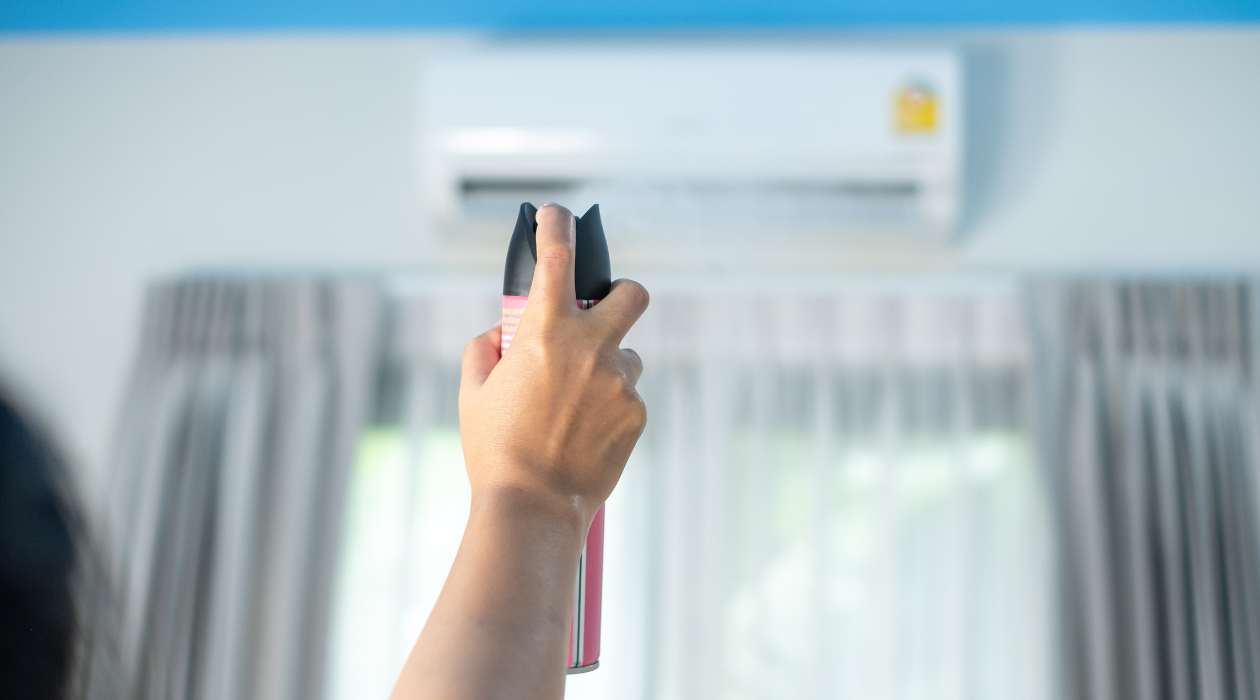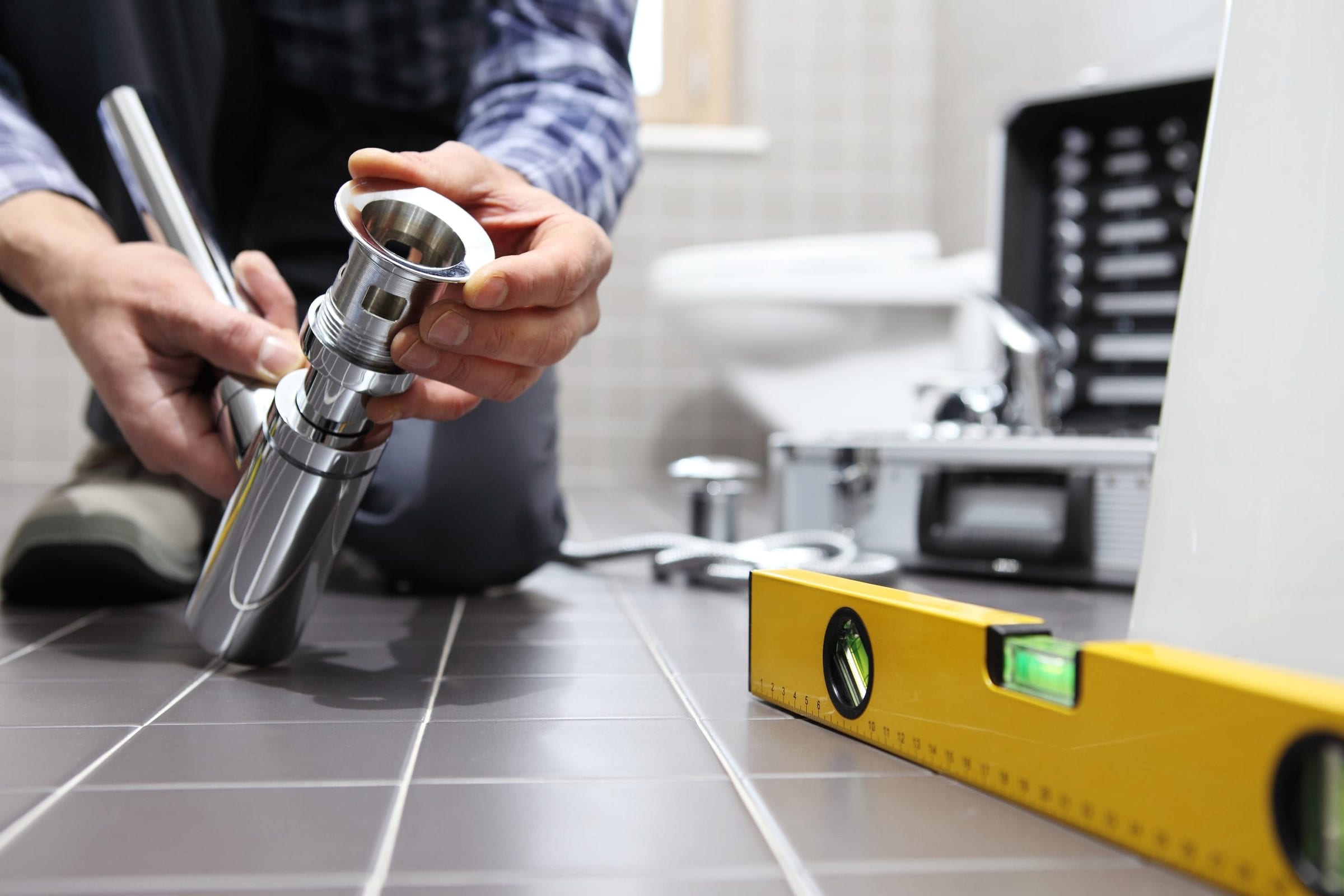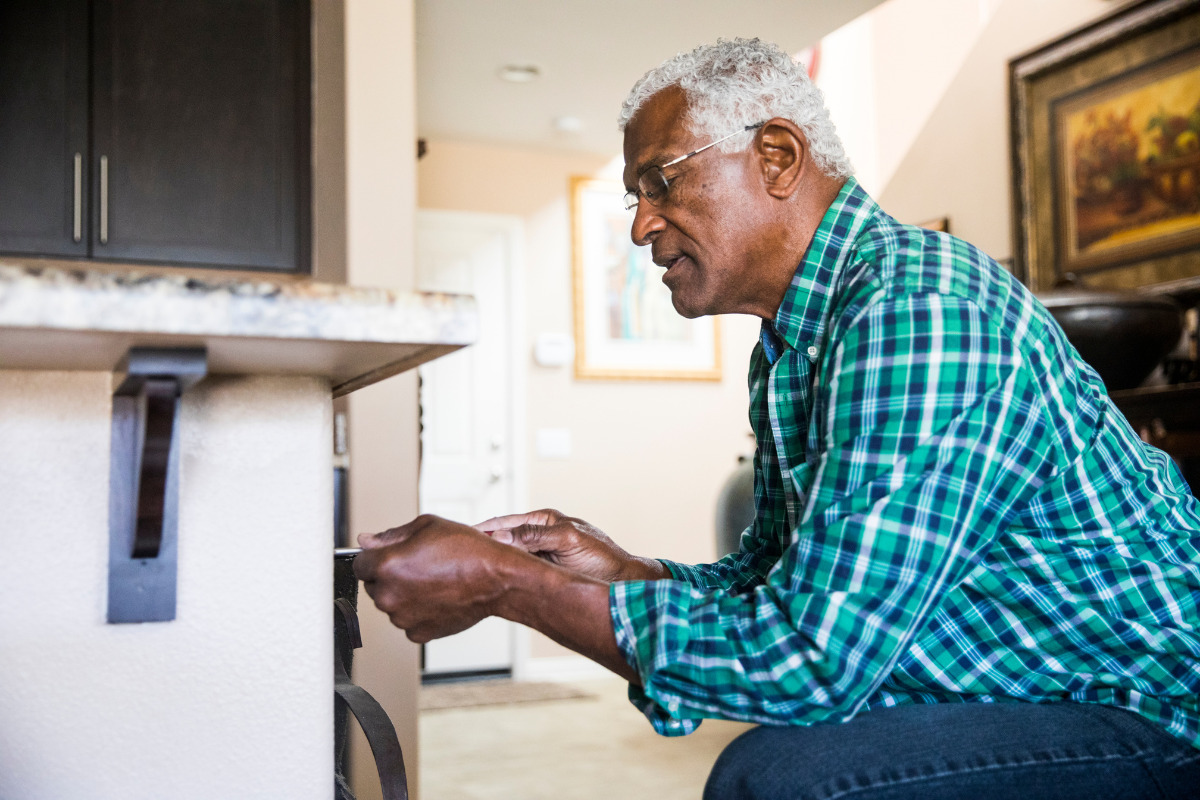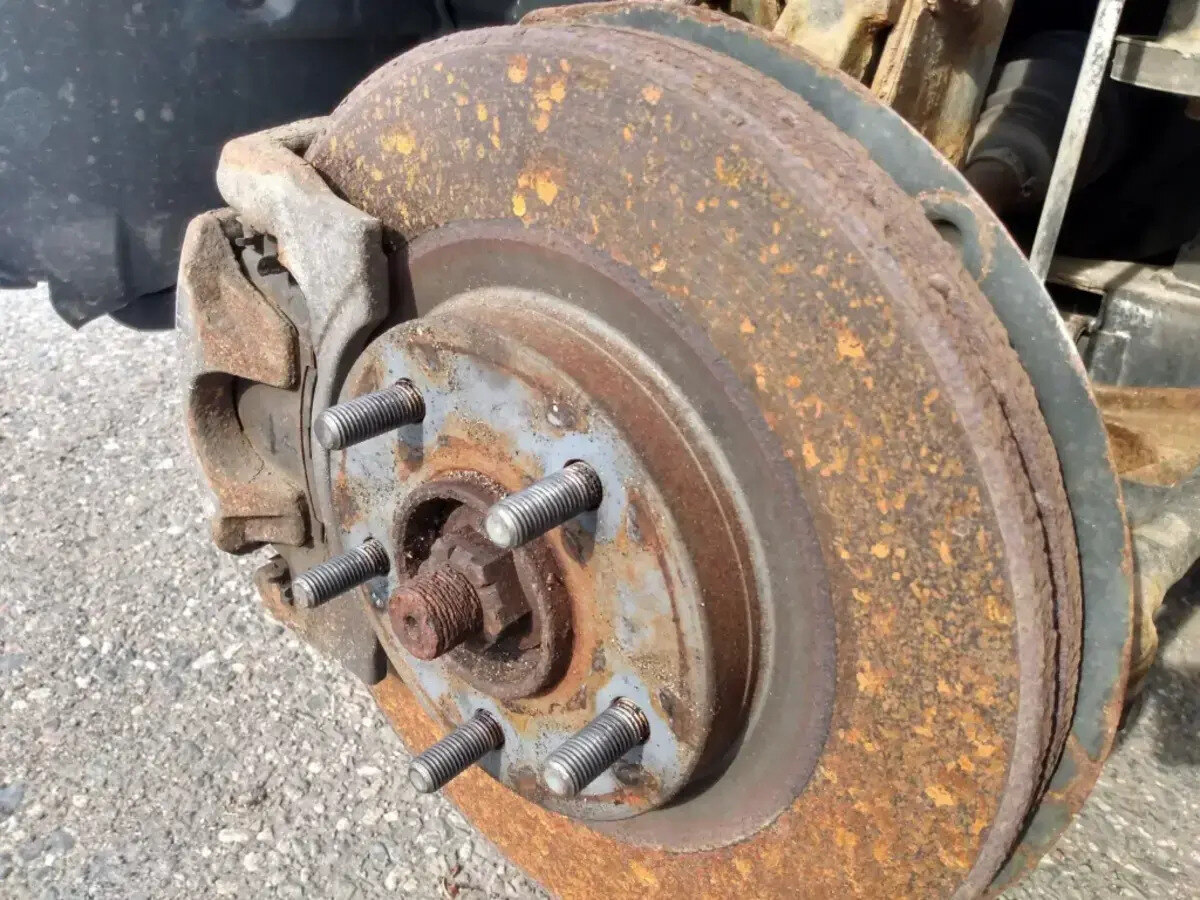Home>Home Maintenance>How To Get Help From Habitat For Humanity For Home Repair
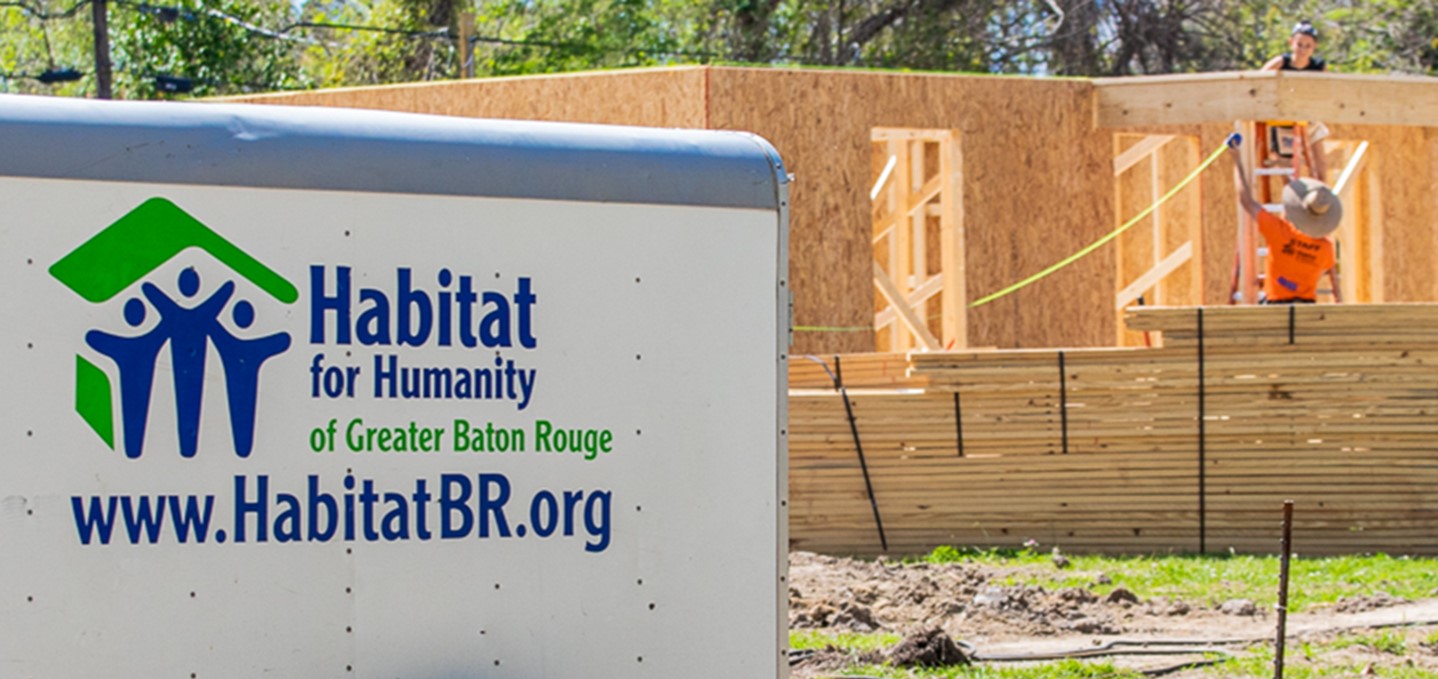

Home Maintenance
How To Get Help From Habitat For Humanity For Home Repair
Modified: March 6, 2024
Learn how to receive assistance from Habitat for Humanity for home repair and maintenance. Find out how to access their services and get help with your housing needs.
(Many of the links in this article redirect to a specific reviewed product. Your purchase of these products through affiliate links helps to generate commission for Storables.com, at no extra cost. Learn more)
Introduction
Welcome to an article that aims to guide you on how to get help from Habitat for Humanity for home repairs. Home maintenance is a vital aspect of homeownership, ensuring that your property remains safe, functional, and comfortable. However, not everyone has the financial means or skills to tackle these repairs and improvements on their own. That is where organizations like Habitat for Humanity step in to lend a helping hand.
Habitat for Humanity is a renowned nonprofit organization dedicated to providing safe and affordable housing for families in need. While their primary focus is building homes, many local Habitat for Humanity affiliates also offer assistance for home repairs and renovations.
Whether you are dealing with a leaky roof, broken HVAC system, or outdated plumbing, Habitat for Humanity may be able to offer the support you need to address these issues. This article will walk you through the eligibility criteria, application process, documentation required, types of repairs covered, evaluation and approval process, cost and funding, volunteer support, and the timeline for completion.
Rest assured, with the help of Habitat for Humanity, you can improve the safety, quality, and longevity of your home, all while staying within your means. Let’s dive into the details and see how you can access the assistance provided by this incredible organization.
Key Takeaways:
- Habitat for Humanity offers affordable home repairs for those in need, focusing on safety and essential functionality. Eligibility, application, and volunteer support are key aspects to consider when seeking assistance.
- Homeowners can access vital repair assistance by partnering with Habitat for Humanity. The organization’s mission is to create safe and nurturing living spaces through affordable repairs, volunteer labor, and community collaboration.
Eligibility Criteria
Before applying for home repair assistance from Habitat for Humanity, it is important to understand the eligibility criteria. While the specific requirements may vary slightly between different local affiliates, there are a few common factors to consider.
1. Income Guidelines: Habitat for Humanity typically prioritizes individuals and families with low to moderate incomes. This is to ensure that those who are most in need of assistance are given priority. Each local affiliate may have specific income guidelines, so it is essential to check with your local chapter to determine if you meet the requirements.
2. Homeownership: In most cases, applicants must own the home in need of repairs. Habitat for Humanity focuses on serving homeowners who are facing financial challenges with their current residence. If you are a renter, you may explore other organizations or programs that cater specifically to your needs.
3. Need for Repairs: Habitat for Humanity typically prioritizes repairs that are essential for the health, safety, and security of the occupants. Examples of this may include structural issues, plumbing or electrical problems, or issues that impede accessibility for individuals with disabilities. Cosmetic or non-essential repairs may not be eligible for assistance.
4. Willingness to Partner: Habitat for Humanity operates on a partnership model. This means that selected applicants are expected to contribute sweat equity to the repair project. Sweat equity can include helping with the repairs, attending home maintenance workshops, and actively participating in the process.
It is important to note that meeting the eligibility criteria does not guarantee approval for assistance. Habitat for Humanity often receives more requests than they can accommodate, and prioritization is based on the severity of need, available funding, and other factors determined by the local affiliates.
If you believe you meet the eligibility criteria mentioned above, it is now time to move forward and start the application process. Let’s explore the next steps in detail.
Application Process
Applying for home repair assistance from Habitat for Humanity typically involves a straightforward process that can be completed in a few steps. Although the specific requirements and procedures may vary between local affiliates, the following steps are commonly followed:
1. Contact Your Local Habitat for Humanity: Begin by reaching out to your local Habitat for Humanity affiliate. You can find their contact details on the organization’s website or through a simple online search. Call or email them to inquire about their home repair assistance program and express your interest in applying.
2. Attend an Information Session: Local affiliates often host information sessions to provide detailed information about their home repair program, eligibility criteria, and application process. Attend one of these sessions to learn more about the available options and receive guidance on how to apply.
3. Complete the Application: Once you have gathered all the necessary information, fill out the application form provided by the affiliate. The application will ask for details about your income, homeownership status, the nature of repairs needed, and any other relevant information. Be sure to provide accurate and complete information to the best of your knowledge.
4. Submit Supporting Documents: In addition to the application form, the affiliate may require certain supporting documents to assess your eligibility and the extent of repairs needed. This may include income verification, proof of homeownership, photographs of the repairs, and any relevant documentation pertaining to the condition of the property.
5. Wait for Evaluation: Once you have submitted your application and supporting documents, the affiliate will review your case. This evaluation process may take some time, as they carefully assess the severity of need, available funding, and other determining factors. Be patient during this stage, as the timeframe can vary depending on the demand and resources of the local affiliate.
6. Notification of Approval: If your application is approved, you will receive a notification from the affiliate. They will provide details about the approved repairs, the estimated timeline for completion, and any additional steps you may need to take. Congratulations on reaching this stage!
7. Moving Forward: Upon receiving approval, you will work closely with the Habitat for Humanity team to coordinate the repair project. This may involve scheduling the repairs, attending required workshops or training sessions, and actively participating in the renovation process, as agreed upon in the partnership agreement.
Remember that every local Habitat for Humanity affiliate operates differently, so it is crucial to stay in communication with them throughout the process. By following these application steps and working closely with the affiliate, you are one step closer to getting the help you need to repair and improve your home.
Documentation Required
When applying for home repair assistance from Habitat for Humanity, it is important to gather and submit the necessary documentation to support your application. These documents help the affiliate assess your eligibility and determine the extent of repairs needed. While the specific requirements may vary between local affiliates, here are some common documents that you may need to provide:
1. Proof of Income: You will likely be asked to provide documentation that verifies your income. This may include recent pay stubs, bank statements, tax returns, or any other proof of income sources. The purpose of this document is to assess your financial need and determine whether you meet the income guidelines of the program.
2. Proof of Homeownership: Since Habitat for Humanity typically assists homeowners, you will need to provide proof that you own the property in need of repairs. This can be in the form of a deed, mortgage statement, or any other official document that demonstrates your homeownership status.
3. Photographs of Repairs: Providing visual evidence of the repairs needed can be crucial in assessing the severity and determining the scope of the project. Take clear photographs that clearly depict the areas requiring repair. This can help the affiliate understand the extent of work required to improve your home.
4. Documentation of Health and Safety Concerns: If the repairs you are seeking assistance for involve health and safety concerns, such as hazardous electrical systems or plumbing issues, it is essential to provide any relevant documentation or reports. This can include inspection reports, estimates from contractors, or any other official documentation that highlights the safety risks identified.
5. Medical Documentation (if applicable): If you or someone in your household has specific medical needs that are impacted by the repairs needed, you may need to provide medical documentation, such as doctor’s notes or medical reports, to support your case. This helps the affiliate understand the additional health-related challenges you are facing.
It is important to note that the documentation requirements may vary, and some affiliates may require additional information specific to their program. Reach out to your local affiliate for a comprehensive list of required documents to ensure a smooth application process.
When submitting your documents, make sure to organize them neatly and provide clear copies or scans. Double-check that all information provided is accurate and up-to-date. This will help streamline the evaluation process and increase the chances of your application being reviewed promptly.
By ensuring you have the necessary documentation prepared and submitting it along with your application, you are taking an important step towards getting the help you need to address the repairs in your home.
Types of Home Repairs Covered
When seeking home repair assistance from Habitat for Humanity, it is important to understand the types of repairs that are typically covered by their programs. While the specific coverage may vary between different local affiliates, common types of repairs that may qualify for assistance include:
1. Structural Repairs: Habitat for Humanity often provides assistance for structural repairs, such as foundation issues, roof repairs, or fixing load-bearing walls. These repairs are essential for maintaining the integrity and safety of your home.
2. Plumbing and Electrical Repairs: Malfunctioning plumbing and electrical systems can disrupt your daily activities and pose safety hazards. Habitat for Humanity may help with repairing or replacing faulty plumbing systems, fixing leaks, or addressing electrical issues.
3. Heating, Ventilation, and Air Conditioning (HVAC) Repairs: A functioning HVAC system is essential for maintaining a comfortable living environment. Habitat for Humanity may assist in repairing or replacing HVAC systems to ensure proper heating and cooling functionality.
4. Accessibility Modifications: Habitat for Humanity recognizes the importance of accessibility for individuals with disabilities. They may provide assistance for modifications that improve accessibility, such as wheelchair ramps, grab bars in bathrooms, or widened doorways.
5. Weatherization and Energy Efficiency: Habitat for Humanity promotes energy-efficient and sustainable housing. They may help homeowners make weatherization improvements, such as insulating walls and attics, sealing air leaks, and installing energy-efficient windows and doors.
6. Fire and Safety Upgrades: Habitat for Humanity places a high priority on ensuring the safety of your home. They may assist with upgrades that enhance fire safety, such as installing smoke detectors, fire extinguishers, or fire-resistant materials.
7. Other Essential Repairs: Depending on the specific circumstances and available funding, other essential repairs may be eligible for assistance. These can include repairing or replacing damaged flooring, addressing mold or water damage, or fixing plumbing fixtures.
It is important to note that cosmetic or non-essential repairs are typically not covered by Habitat for Humanity’s home repair programs. These programs focus on ensuring the health, safety, and essential functionality of your home.
When applying for assistance, clearly communicate the specific repairs you need and provide any relevant documentation to support your case. The local affiliate will evaluate your request and determine if it falls within their program’s coverage.
By understanding the types of repairs that are typically covered, you can align your expectations and communicate effectively with the affiliate to address the most critical needs of your home.
To get help from Habitat for Humanity for home repair, visit their website or contact your local affiliate to inquire about their repair programs and eligibility requirements.
Evaluation and Approval Process
Once you have submitted your application and supporting documents for home repair assistance from Habitat for Humanity, the evaluation and approval process will begin. This process is designed to assess the severity of need, available funding, and other determining factors. While the specifics may vary between local affiliates, here is a general overview of what you can expect:
1. Evaluation of Need: The local affiliate will carefully review your application and supporting documents to assess the severity and urgency of the repairs needed. They will consider factors such as the impact on health and safety, the potential for further damage if left unaddressed, and the overall condition of your home.
2. Inspection: In some cases, the affiliate may conduct an inspection of your property to verify the repairs needed and assess the scope of the project. This inspection helps the affiliate understand the extent of work required and determine the resources needed for the repairs.
3. Available Funding: Habitat for Humanity’s ability to provide home repair assistance is dependent on available funding. The affiliate will review their budget and determine if they have the resources to support your repair project at the time of your application. In some cases, you may be placed on a waiting list until funding becomes available.
4. Selection Process: Considering the severity of need, available funding, and other factors, the local affiliate will have a selection process in place to determine which applicants will receive assistance. The selection process may involve a committee or panel that reviews and evaluates each application to make fair and informed decisions.
5. Notification of Approval: If your application is approved, you will receive a notification from the affiliate. They will provide details about the approved repairs, the estimated timeline for completion, and any additional requirements or steps you need to take. This notification will outline the terms of the partnership between you and Habitat for Humanity.
It is important to note that not all applications may be approved due to limited resources and high demand. Habitat for Humanity’s goal is to assist as many deserving homeowners as possible, but they may need to prioritize based on factors such as the severity of need and available funding.
During the evaluation and approval process, it is crucial to maintain open communication with the local affiliate. If there are any changes in your contact information or the status of your repairs, be sure to notify them promptly. This will help ensure a smooth and efficient process.
By understanding the evaluation and approval process, you can have realistic expectations and be prepared for any additional steps or requirements that may arise. Stay patient and hopeful as the affiliate works diligently to assist homeowners in need of repair assistance.
Cost and Funding
One of the most significant concerns when seeking home repair assistance is the cost involved. Fortunately, Habitat for Humanity strives to make repairs affordable for homeowners facing financial challenges. Here are some key aspects to understand regarding the cost and funding of Habitat for Humanity’s home repair programs:
1. Affordable Repairs: Habitat for Humanity aims to provide affordable or no-cost repairs to eligible homeowners. This means that the cost to homeowners is often significantly lower than hiring a private contractor. The organization works with skilled volunteers, negotiates discounts with suppliers, and may use donated or discounted materials to keep costs minimal.
2. Sliding Fee Scales: Depending on your income and financial situation, the cost of repairs may be determined through a sliding fee scale. This means that your payment for the repairs will be based on a percentage of your income, ensuring that repairs remain affordable and accessible to individuals and families with limited financial means.
3. Available Funding Sources: Habitat for Humanity relies on a combination of funding sources to support their home repair programs. This includes grants, donations from individuals and businesses, corporate sponsorships, and government funding. The availability of funding varies between local affiliates and may impact the scope and availability of assistance.
4. Public and Private Partnerships: Habitat for Humanity often collaborates with various stakeholders, including local governments, community organizations, and corporate partners, to secure funding for their home repair programs. These partnerships help broaden the resources available for repairs and increase the organization’s impact in assisting homeowners in need.
5. Volunteer Labor: Habitat for Humanity heavily relies on the support of volunteers to complete home repairs. Skilled volunteers, such as carpenters, plumbers, and electricians, generously donate their time and expertise. This volunteer labor significantly reduces labor costs, which in turn lowers the overall cost of the repairs for the homeowner.
It is important to note that while Habitat for Humanity strives to keep repair costs low, there may still be some financial responsibility for homeowners. The exact cost will depend on factors such as the extent of repairs needed, your income level, and available funding. During the application process, the local affiliate will provide you with detailed information about the estimated cost of your repairs and the payment options available.
If you are concerned about your ability to afford the repairs, discuss your financial situation with the local affiliate. They may be able to assist you in exploring additional resources or financial assistance programs that can help reduce the financial burden further.
Remember, Habitat for Humanity’s goal is to provide safe and affordable housing solutions. They understand the financial challenges many homeowners face and work diligently to ensure that repairs remain within reach for those in need.
Volunteer Support
One of the unique aspects of Habitat for Humanity’s home repair programs is the significant support they receive from volunteers. These dedicated individuals generously donate their time, skills, and labor to help homeowners in need. Here’s what you need to know about volunteer support in Habitat for Humanity’s home repair initiatives:
1. Skilled Volunteers: Habitat for Humanity works with skilled volunteers who possess expertise in various trades. These volunteers may include carpenters, plumbers, electricians, painters, and other professionals. Their knowledge and experience ensure that repairs are carried out effectively and to a high standard.
2. Training and Supervision: Volunteers undergo training and orientation to ensure they understand the scope of the repairs and the expected quality of work. Habitat for Humanity’s staff provides guidance and supervision throughout the repair process to ensure that repairs are completed safely and effectively.
3. Cost Reduction: Volunteer labor significantly reduces the cost of repairs for homeowners. By generously donating their time and skills, volunteers help keep the overall cost of repairs lower than if homeowners were to hire private contractors. This allows more homeowners to access affordable home repair assistance.
4. Community Engagement: Volunteer support creates a sense of community and fosters collaboration. Homeowners have the opportunity to connect with volunteers, learn new skills, and build relationships. This creates a positive and supportive environment throughout the repair process.
5. Sweat Equity: Habitat for Humanity operates on a partnership model, which often includes a “sweat equity” requirement. Homeowners are expected to contribute their own labor, alongside volunteers, to the repair project. This helps foster a sense of ownership and empowerment for homeowners, as they actively participate in improving their own living conditions.
6. Volunteer Opportunities: If you are interested in giving back to your community, Habitat for Humanity’s home repair programs offer opportunities for individuals and groups to volunteer their time and skills. By volunteering, you can make a tangible impact in improving the lives of homeowners and helping them create safer and more comfortable living spaces.
If you are considering volunteering for Habitat for Humanity’s home repair programs, reach out to your local affiliate to inquire about opportunities and how you can get involved. They can provide you with information on volunteer orientations, skill requirements, and upcoming repair projects. Volunteering with Habitat for Humanity is a rewarding experience that allows you to make a difference in someone’s life and contribute to the betterment of your community.
Overall, volunteer support is a crucial component of Habitat for Humanity’s home repair programs. Through the dedication and selflessness of volunteers, repairs are completed efficiently, costs are reduced, and a sense of community is fostered. It truly is a collaborative effort to improve the homes and lives of those in need.
Timeline for Completion
When it comes to the timeline for completing repairs through Habitat for Humanity’s home repair programs, several factors come into play. While each project is unique, there are some general considerations to keep in mind:
1. Evaluation and Approval: The initial evaluation and approval process can take some time. The local affiliate must assess the severity of need, review funding availability, and determine how the repair project fits within their resources. The timeline for this stage can vary depending on the demand and resources of the affiliate.
2. Planning and Preparation: Once your application is approved, the affiliate will work with you to plan and prepare for the repair project. This may involve scheduling site visits, discussing the specific repairs needed, and coordinating volunteer and contractor availability. The timeline for this stage will depend on the complexity of the repairs and the availability of resources.
3. Material Procurement: Habitat for Humanity strives to secure affordable or donated materials for repairs. However, the availability and delivery of materials can sometimes cause delays in the timeline. The affiliate will work to ensure the necessary materials are acquired in a timely manner to keep the project on track.
4. Volunteer and Contractor Availability: The availability of volunteers and skilled contractors will influence the timeline for completing the repairs. Coordination is required to schedule volunteers, contractors, and any necessary permits or inspections. Delays can occur if there are challenges in securing a sufficient workforce or if unforeseen circumstances arise.
5. Scope of Repairs: The scope of the repair project will also impact the timeline for completion. Minor repairs may be completed relatively quickly, while larger or more complex repairs may take more time. The affiliate will provide you with an estimated timeline based on the specific repairs needed in your home.
6. Your Availability: As a homeowner, your availability and participation in the repair process can also influence the timeline. Habitat for Humanity often expects homeowners to contribute sweat equity, which may involve assisting with the repairs or attending workshops. Your ability to participate in a timely manner can impact the overall completion timeline.
It is important to remain patient throughout the repair process. While delays may occur, the local affiliate will work diligently to ensure that the repairs are completed as efficiently as possible. Regular communication with the affiliate can help address any concerns and keep you informed of the progress and any updates to the timeline.
By understanding the factors that influence the timeline for completion, you can have realistic expectations and plan accordingly. Keep in mind that the ultimate goal is to ensure that the repairs are done safely, effectively, and in a timeframe that respects the needs and resources available to both the affiliate and homeowners.
Read more: How To Get Rid Of Grass Mites On Humans
Conclusion
Repairing and maintaining a home is essential for the safety, functionality, and comfort of homeowners. However, not everyone has the financial means or skills to undertake these repairs on their own. That is where Habitat for Humanity steps in to provide vital assistance.
In this article, we have explored how to get help from Habitat for Humanity for home repairs. By understanding the eligibility criteria, application process, required documentation, types of repairs covered, evaluation and approval process, cost and funding aspects, the support of volunteers, and the timeline for completion, homeowners like you can access the help they need to address critical home repairs.
Habitat for Humanity’s mission is to create safe and affordable housing solutions. Through their home repair programs, they aim to improve the living conditions of homeowners facing financial challenges. By providing affordable repairs, utilizing volunteer labor, and partnering with individuals, organizations, and communities, Habitat for Humanity is making a significant impact in helping homeowners create better living environments.
It is important to note that each local affiliate operates differently, and the availability of resources and funding may vary. However, by reaching out to your local Habitat for Humanity affiliate and exploring their home repair programs, you can take a crucial step in securing the assistance you need.
Remember, home repairs are not just about fixing physical structures; they are about creating safe and nurturing spaces where families can thrive. Habitat for Humanity understands the importance of having a place to call home, and they are dedicated to helping homeowners achieve that goal.
So, if you are in need of home repair assistance, don’t hesitate to reach out to your local Habitat for Humanity affiliate. The support and resources they provide can make a meaningful difference in improving the safety, quality, and longevity of your home.
Take the first step today towards creating a better living environment for yourself and your loved ones by seeking help from Habitat for Humanity. Together, we can build homes, restore hope, and transform lives through the power of safe and affordable housing.
Frequently Asked Questions about How To Get Help From Habitat For Humanity For Home Repair
Was this page helpful?
At Storables.com, we guarantee accurate and reliable information. Our content, validated by Expert Board Contributors, is crafted following stringent Editorial Policies. We're committed to providing you with well-researched, expert-backed insights for all your informational needs.





